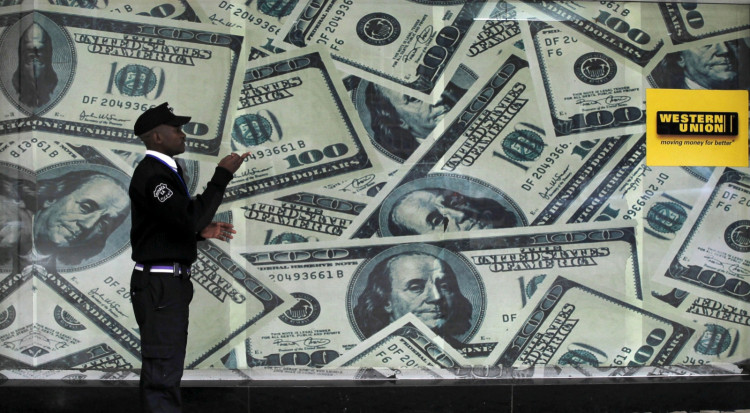The U.S. dollar had a strong start to the week thanks to defensive buying as investors remained on guard due to a rise in COVID-19 cases in some Chinese cities that prompted authorities to tighten regulations.
The dollar index increased by 0.131% to 107.030 on Monday after posting its largest weekly gain in a month last week, while the offshore Chinese yuan rate was $7.1700 to the dollar.
Beijing, the capital of China, reported two COVID-19 deaths on Nov. 20, and the city's most populous district continued its weekend call for residents to remain at home on Monday.
Hopes of a quick easing of the tight pandemic restrictions have been dashed in light of the increasing instances.
"The outlook for China's zero-COVID market will remain a key source of volatility," Carol Kong, a currency strategist at Commonwealth Bank of Australia, said. "If we do see another set of step up in restrictions, it indicates to me that the Chinese officials are still wary of any eventual reopening."
Federal Reserve officials' hawkish statements have helped the dollar stabilize following a steep drop earlier in November.
Investors will be very interested in the minutes from the Fed's November meeting, which are set to be issued on Wednesday and could give light on how far policymakers expect interest rates to rise in the future.
Much hinges on how the Fed reacts to statistics showing both consumer and producer prices in the U.S. climbed at a slower annual rate in October than in September - and if this trend continues.
At the Fed's November meeting, head Jay Powell did not expressly telegraph a fifth consecutive 0.75 percentage point increase, which traders saw as a hint of the Fed's willingness to raise interest rates by half a percentage point as soon as next month.
In addition, hugely popular wagers for a stronger dollar in the currency markets have been overturned by signs of lowering inflation.
While sterling last traded at $1.1851, down 0.30% on the day, the euro declined 0.21% to $1.0302.
At 140.42 per dollar, the Japanese yen lost 0.04% of its value against the dollar. The Australian dollar decreased 0.25% to $0.665 against the U.S. dollar, while the kiwi dropped 0.21% to $0.614.
Meanwhile, Bitcoin fell 0.3% to $16,205.00, while Ether fell 0.3%. According to bankruptcy documents, FTX owes over $3.1 billion to its 50 largest creditors as the bankrupt cryptocurrency exchange conducts a comprehensive evaluation of its global assets.





